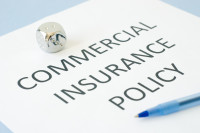Categories
- Additional Insured
- ChildrensProducts
- Claims Made
- Cyber Insurance
- Dietary Supplements and Nutraceuticals
- Ecigarettes
- Firearms Insurance
- Food Products
- Foreign Products Liability
- Foreseeable Misuse
- Frivolous Lawsuits
- General Liability
- Industrial
- Infographics
- Intellectual Property
- Looking ahead
- Marijuana Liability
- Medical Products
- Mutual Indemnification
- Nano Technology
- News
- Online Sellers Insurance Requirements
- Outsourcing
- Piercing The Corporate Veil
- Pollution Liability
- Product liability
- Product Recall
- Retail Chain Store
- Start-Up Business
- Statute of Repose
- Surplus Lines Insurance
- Technology
A Better Understanding of Claims-Made Policies

Claims-made policy forms are common in industries that sell high hazard products such as medical and children’s products. But it’s important to know not all claims-made forms are created equal. There are two distinct claims-made policy forms: Claims-Made & Reported and pure Claims-Made.
Claims-Made & Reported
The most common form used for Product Liability policies is the Claims-Made & Reported Form. This type of policy requires the claim be made during the policy or designated Extended Reporting Period (ERP) and reported in the same policy period of the policy currently in force. The policy declaration (summary) page may state: This is a Claims-Made Policy. This Policy only covers those Claims first made and reported against the insured during the Policy Period or ‘ERP,’ if applicable.
Pure Claims-Made
The second type least commonly used is the Pure Claims-Made Form. With this type of policy form the insured only needs to report the claim as soon as practicable. The phrase “as soon as practicable” provides more flexibility and may allow claims to be turned in after the policy term.
What is a claim?
It’s important to understand what constitutes a claim. Is a claim a notice received by the insured holding them responsible for property damage, bodily, advertising or personal injury? Or is it the formal service of lawsuit or institution of arbitration proceedings against the insured? The answer could be both.
To determine this, examine the “Notice of Claim” reporting provisions or the “Definitions” section of your policy. A notice could be something as informal as an email or letter from the alleged injured party. Or it could be something as formal as being served with lawsuit papers. This is why it is important you understand the definition of a claim within your policy.
The simple rule for any insured with a claims-made policy is to always report any claim or potential circumstance that could lead to a claim. Typically, an insured fails to report a notice of claim out of fear of it having a negative impact on future premiums. The insured waits, hoping that the notice never turns into a formal claim.
When your policy is canceled or not renewed
Renewing your insurance policy and failing to notify the underwriter of a potential claim in the renewal application can result in a denied claim. The insurance carrier’s excuse would be that they would never renew a policy knowing of a claim or potential claim.
If you go out of business or the carrier decides to non-renew or cancel the policy, it’s wise to purchase the ERP. This is particularly advisable if you sell high-hazard products. ERP is a period of one, two or three years the insured can extend the reporting period of potential claims on their policy for an additional premium. The premium is a contractually predetermined percentage of the last policy’s premium. In many claims-made policies the ERP for one year is 100%, 150% for two years and 200% for three years of the last premium paid.
For more information please call us at (800) 622-7370 and click here to get a quote.
-
 Click the Button Below to Get Your
Click the Button Below to Get Your
No-Obligation Quotes from Among the
Top 18 Leading Insurance Carriers Today -
Recent Industry News
- How to Prevent Nuclear Product Liability Verdicts
- Amazon Sellers and Vendors Strategy Including Insurance Requirements
- Walmart Sellers Insurance
- Product Liability Limit Requirements of Online Sellers
- State-by-State Product Liability Analysis of Laws Impacting Businesses
- Children’s Product Liability: Strange Claims and Need for Insurance
- Product Liability vs. Environmental Insurance for the Chemical Industry
- Product Liability in the 3D Printing Industry: New Materials and Their Significance
- Product Liability Concerns in Agricultural Equipment Enhanced with Artificial Intelligence
- Navigate Product Liability in Battery and Solar Industry
Monthly News Archives
